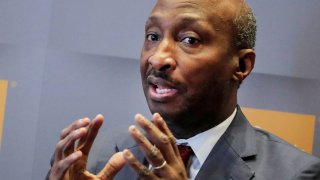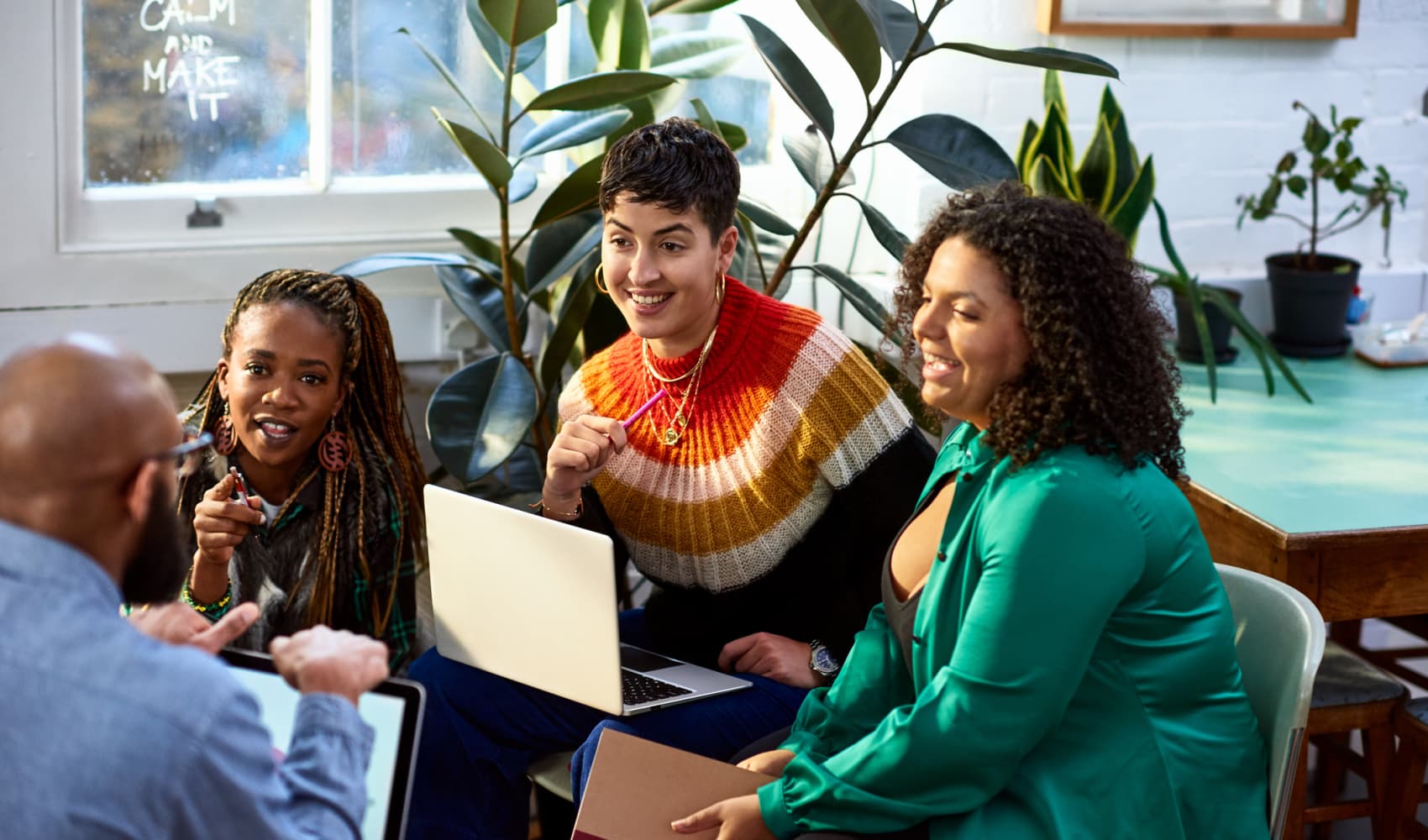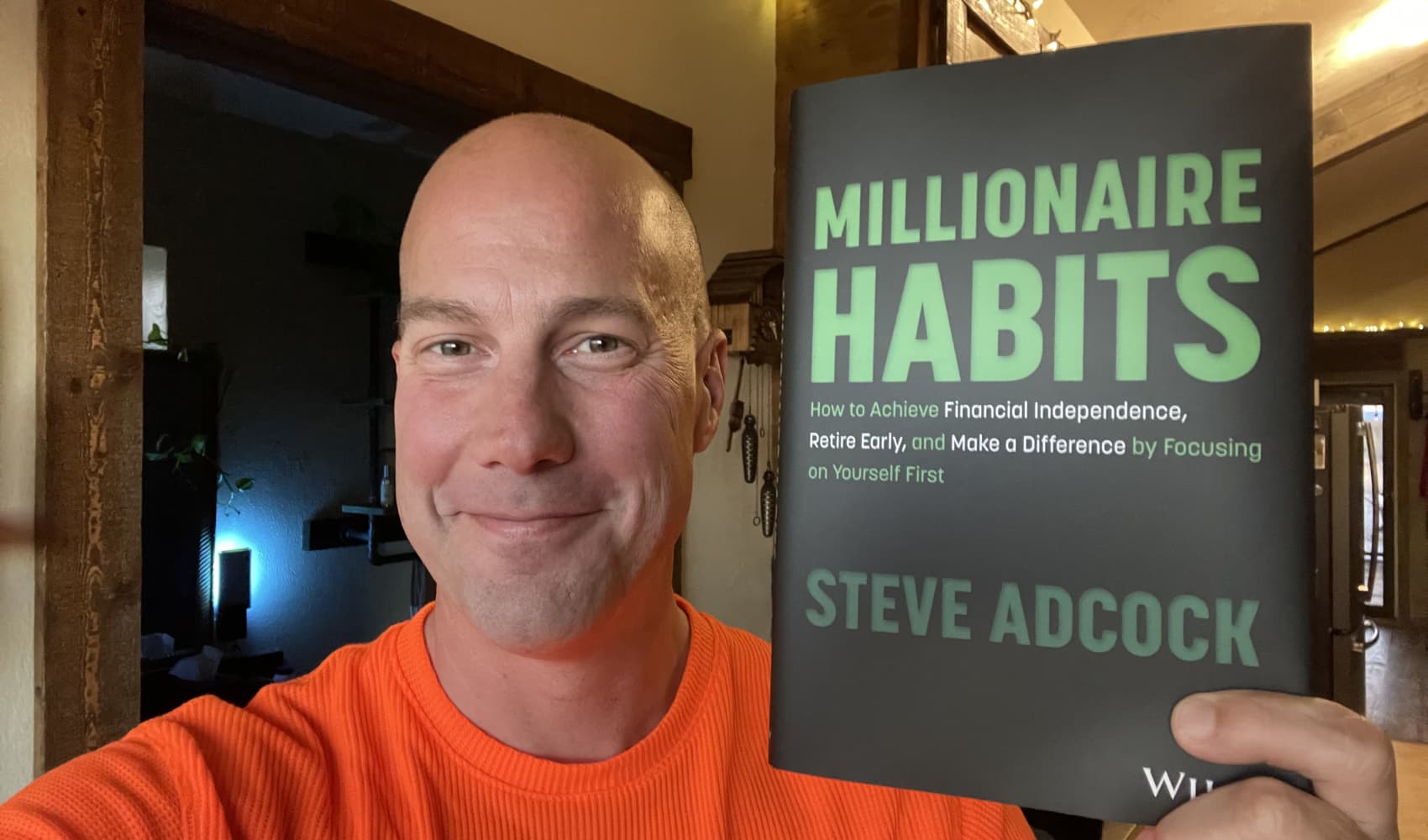
- "The Pfizer and Moderna vaccines look fantastic," Merck CEO Kenneth Frazier told CNBC.
- However, he cautioned that the widespread distribution will take time.
- "I think for the next six months and beyond, we're still going to have to follow the public-health guidance ... to protect one another," he said.
Merck CEO Kenneth Frazier told CNBC on Thursday he was hopeful about continued progress on coronavirus vaccines but suggested that strict adherence to public-health protocols would remain necessary for months ahead.
"I think there's a lot of reason to be optimistic about the vaccines that are coming out. The Pfizer and Moderna vaccines look fantastic," Frazier said on "Closing Bell," before a Food and Drug Administration panel voted to recommend approval for Pfizer's emergency use application.
The FDA could give an official OK on limited clearance as soon as Friday, paving the way for the first round of immunizations to begin for health-care workers and residents of long-term care facilities. The regulatory agency is set to consider Moderna's vaccine next week.
After those vaccines are distributed to "the most vulnerable populations" and health-care workers, Frazier said, then "we can talk about a more general rollout. But that's probably going to take longer than six months in order for us to vaccinate most people in this country and, of course, around the world."
That's why he does not foresee Americans ditching their masks anytime soon.
Money Report
"I think for the next six months and beyond, we're still going to have to follow the public-health guidance of wearing a mask and social distancing and hygiene and all of those things to protect one another," he said.
Merck is working on two Covid-19 vaccines, although they're "not nearly as advanced" as those developed by Pfizer and Moderna, Frazier said. The pharmaceutical giant also is studying two potential treatments for the disease, he said.
"We have an antiviral that's moved into phase three [trials] that we hope will play a very important role in terms of knocking down the virus and perhaps keeping it from being one that can reproduce and therefore being one that can spread," Frazier said. "We're also working on a therapeutic that's useful late, in terms of very sick people, that we think will actually have an impact on mortality."
Hiring initiative for Black Americans
Frazier's comments Thursday also coincided with the announcement of a hiring initiative designed to address income inequality between Black and White Americans. Frazier co-founded the organization called OneTen alongside a coalition of business leaders. Its goal is to help train, hire and then promote 1 million Black Americans in the next decade.
"What we want to be able to do is promote the most talented people, not the best networkers," said Frazier, one of the most high-profile Black executives in the country. "And I think all of us have to be much more aware of the fact that, frankly, there are a bunch of fictions — I'll be blunt — around African American talent that have to be dismantled in order for African Americans to have an equal opportunity inside corporate America."
Among the 37 companies that signed at OneTen's founding are Eli Lilly, General Motors, Bank of America and Johnson & Johnson. Comcast, the parent of CNBC, also is participating.
"What we have here is a failure of the education-to-employment pipeline in this country," Frazier said. "What we're trying to do with OneTen is to address that by making it a skills-first hiring paradigm, not a credentials-first hiring paradigm, because as long as you have a credentials-first hiring paradigm, there's going to be disproportionate impact on African Americans."






